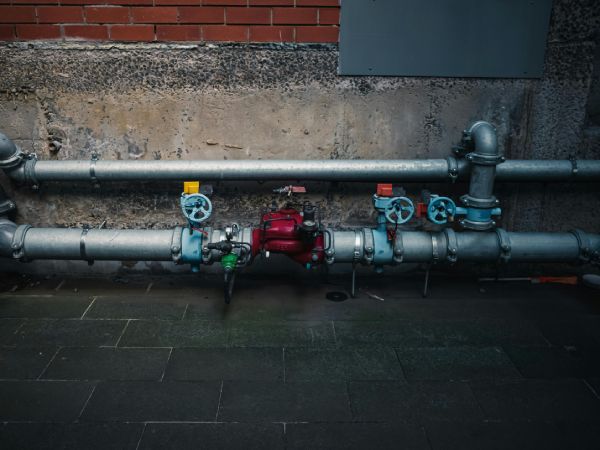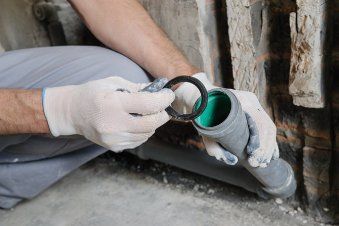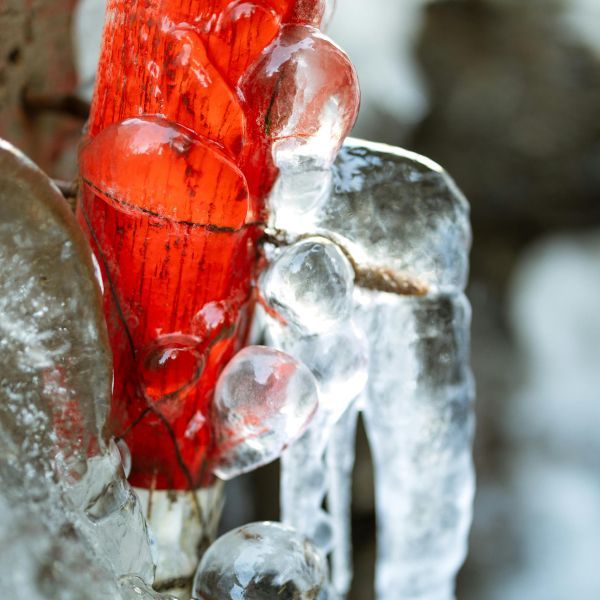Master Plumbers Blog
How to Properly Deal With Frozen Pipes
Otago winters can be harsh. You could wake up on a chilly winter morning, eager to make a hot cup of tea, only to turn on the tap and find no water flowing. Just silence. Then, it dawns on you—your pipes are frozen. It’s frustrating, maybe even a little scary.
But don’t panic! This problem is actually common in colder parts of New Zealand, where temperatures can drop suddenly. You can always call an
emergency plumber to handle the problem, but there are also plenty of ways to handle frozen pipes. Here are some things you can do:
Learn Why Pipes Freeze
Understanding why pipes freeze can help you prevent this problem in the future. Indeed, even Dunedin plumbing experts like Mains Plumbers cannot completely prevent pipes from freezing. The highest-quality pipes aren’t immune to extreme cold and can freeze once the temperature is low enough.
You might also think that only metal pipes freeze since they lose heat quickly. However, plastic pipes can also freeze, just at a slower rate. When water turns to ice, the pipe expands, creating pressure within. If the pressure becomes too great, the pipe may burst.
Thus, it’s crucial to identify where your pipes are and take preventive measures before winter sets in. The pipes that are most likely to freeze are those located in unheated areas of your home, such as basements and garages, as well as pipes under kitchen sinks and along exterior walls. Needless to say, outdoor pipes are even more likely to freeze in cold weather.
Identify Signs of Frozen Pipes
Sometimes, identifying a frozen pipe isn’t always easy. Still, there are common signs you can look out for. For example, if you hear strange noises, such as clanking or bubbling sounds from your plumbing, there may be ice shards in the pipes obstructing the water flow. Another clue is frost forming on the outside of your pipes. In some cases, a foul smell may also come from the drain. This happens when ice creates a blockage that prevents gases from escaping. If you notice any of these symptoms, it’s important to act quickly.
Thaw Frozen Pipes Safely
Once you’ve identified a frozen pipe, you need to thaw it carefully to avoid causing further damage. The first step is to locate the affected section. Then, use a hairdryer or fan heater to blow warm air onto the affected area. Start at the section closest to the tap and work your way along the pipe. This gradual approach helps relieve pressure and reduces the risk of bursting.
If you don’t have a hairdryer, you can soak towels in warm water and wrap them around the frozen pipe. While this process may take longer, it is still effective if monitored closely. You could also consider slowly pouring hot (but not boiling) water over the area or placing a hot water bottle over it. For pipes located under a sink, open the cupboard doors to allow warm air from your home to circulate around them. This can help speed up the thawing process.
It’s important to note that you should never attempt to thaw a pipe using an open flame, such as a lighter or a blowtorch. This is extremely dangerous and can damage the pipe or even start a fire.
Respond Quickly to a Burst Pipe
If a pipe bursts, acting fast is crucial to reduce water damage. The first thing to do is turn off your home’s main water supply. This will stop additional water from flowing through the broken pipe and causing further flooding. Once the main water supply is shut off, turn on all the taps connected to the pipe to drain any remaining water. Then, soak up any excess water using towels and buckets while waiting for emergency plumbing assistance.
It is not advisable to attempt a DIY repair on a burst pipe unless you have plumbing experience. Instead, contact Mains Plumbers as soon as possible to ensure the damage is properly assessed and fixed.
Prevent Pipes from Freezing
Stopping pipes from freezing is much easier than dealing with the damage later. One of the simplest and most cost-effective ways to do this is by insulating your pipes. Foam pipe sleeves, which are available at most hardware stores, can provide an extra layer of protection against freezing temperatures. Additionally, if you live in an area prone to extreme cold, consider using heat tape as an additional safeguard if you live in an area prone to extreme cold.
On particularly cold nights, let a small stream of water flow from your taps. Since moving water is less likely to freeze, this simple trick can prevent your pipes from icing over. While this may slightly increase your water bill, it is far more affordable than repairing a burst pipe.
Equally important, avoid turning off your heating entirely at night. Keeping your home at a consistent temperature, even when you’re away, can significantly reduce the likelihood of frozen pipes.
Call a Plumber for Professional Help
Frozen pipes can be a big inconvenience, but knowing how to handle them makes all the difference. By taking preventive measures and acting swiftly if freezing does occur, you can avoid costly repairs and serious water damage.
However, if you’re unable to locate the frozen section, if your pipe has already burst, or if your thawing attempts are unsuccessful, don’t hesitate to call an emergency plumber in Dunedin and the Greater Otago Region.
Mains Plumbers provides plumbing,
gas fitting, and
drainlaying services. Our professional plumbers have the necessary tools and expertise to resolve your issue quickly and prevent further damage to your home.
Book a service with us today.
All Rights Reserved | Mains Plumbers (2004) Ltd








